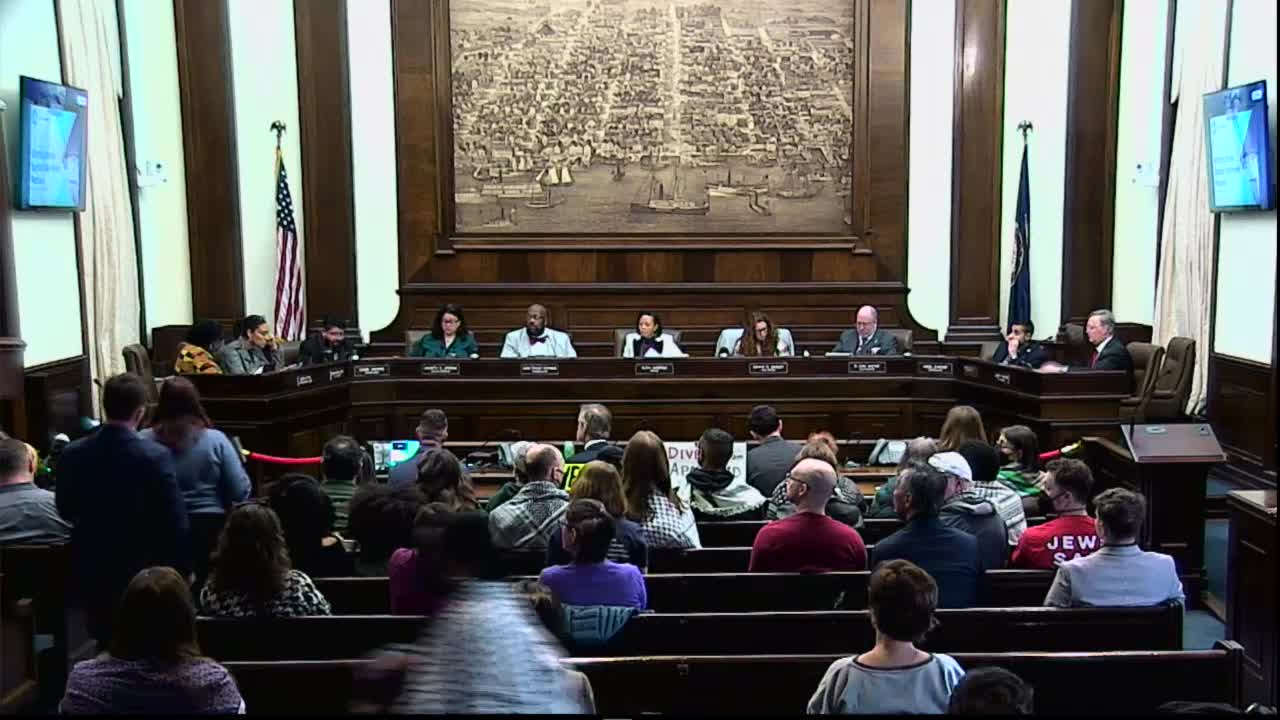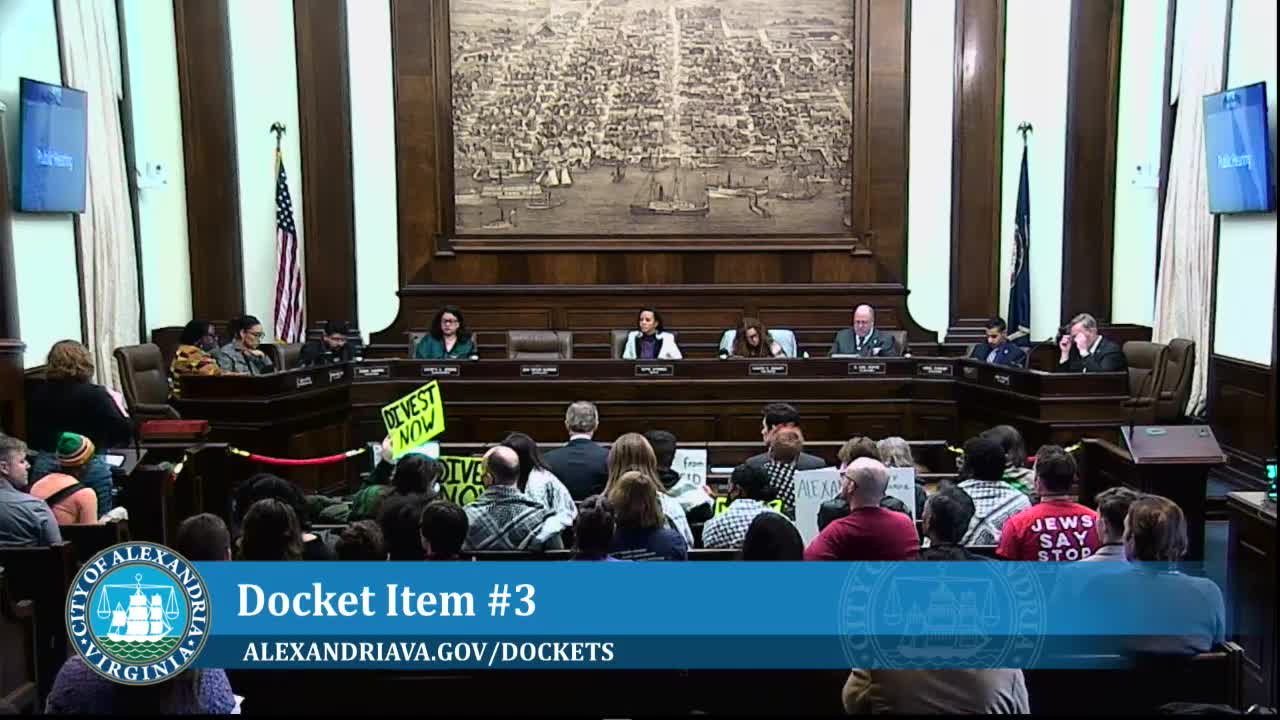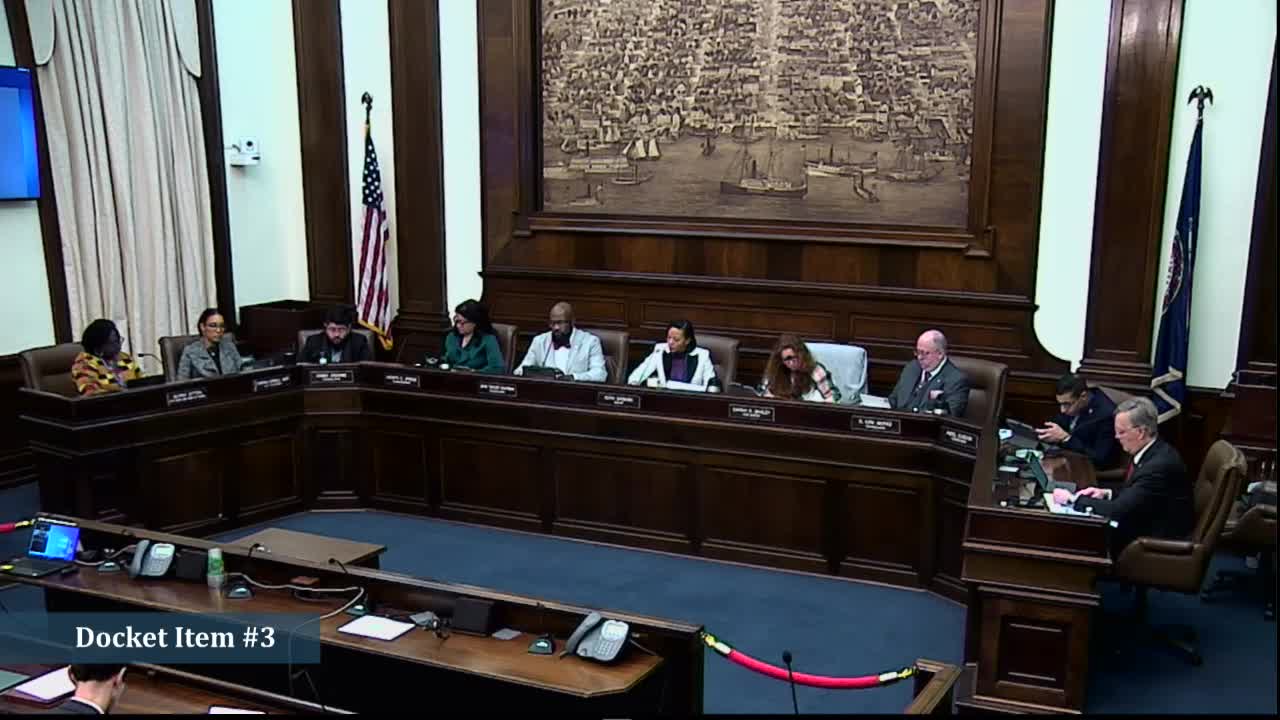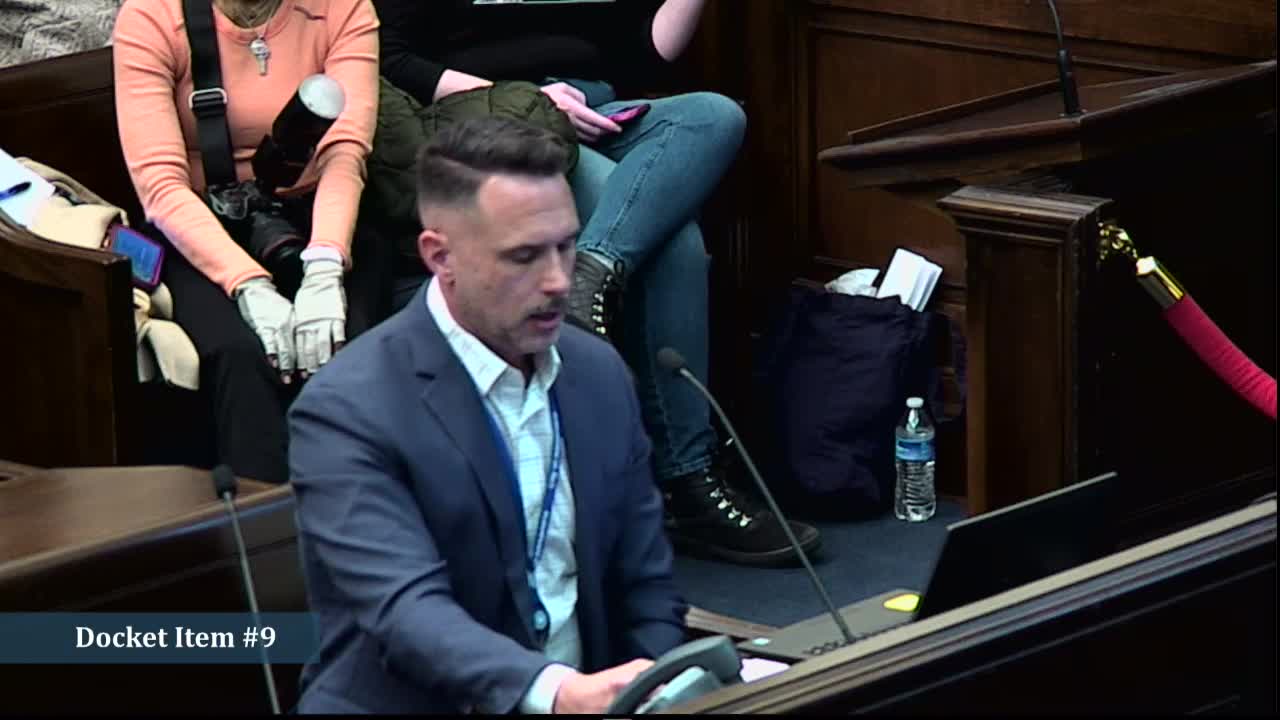Article not found
This article is no longer available. But don't worry—we've gathered other articles that discuss the same topic.

Council clears planning items, approves parking‑reduction conversion and vending ordinance; votes at a glance

Scores of speakers urge Alexandria to divest from companies tied to Israel; Human Rights Commission request cited

Parents and neighbors urge council to oppose Jefferson‑Houston conversion; call for broader planning

